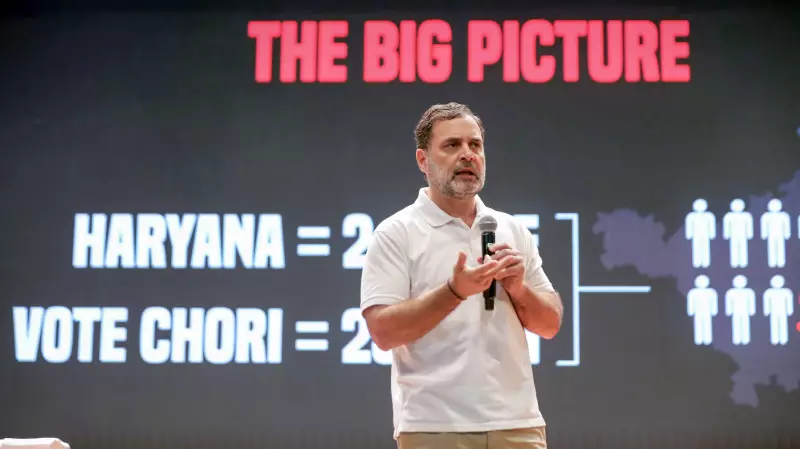
While Congress leader Rahul Gandhi's recent allegations of 'vote theft' dominate political discourse, a significant development remains largely overlooked: sixteen formal petitions filed by the Congress party challenging various election results continue to gather dust with the Election Commission of India.
The Unanswered Appeals
The Congress party has submitted a total of sixteen separate petitions to the Election Commission, each raising serious concerns about electoral irregularities and potential malpractice in different constituencies. These formal complaints, filed through proper channels, represent the party's official attempts to seek redressal through established democratic processes.
Timing and Political Context
The pending petitions gain particular significance in light of Rahul Gandhi's recent public statements accusing the ruling party of systematic electoral manipulation. His characterization of the electoral process as 'vote chor' (vote thief) has sparked intense political debate, yet the formal mechanisms for addressing such concerns appear stalled.
What the Petitions Contain
While specific details of each petition vary, they collectively address multiple aspects of electoral conduct including:
- Alleged discrepancies in voter verification processes
- Concerns about Electronic Voting Machine (EVM) handling
- Issues regarding voter identification procedures
- Complaints about polling station management
- Allegations of procedural violations during counting
Broader Implications for Electoral Integrity
The accumulation of unresolved petitions raises important questions about the mechanisms for addressing electoral disputes in India. With sixteen formal complaints awaiting action, concerns are growing about the effectiveness of existing grievance redressal systems and their impact on public confidence in democratic institutions.
The delay in addressing these petitions comes at a crucial juncture in Indian politics, where allegations of electoral manipulation have become increasingly central to political rhetoric. The situation highlights the tension between political posturing and institutional processes in addressing genuine concerns about election integrity.
Looking Forward
As political temperatures rise around election credibility issues, the fate of these sixteen petitions will be closely watched by political analysts and democracy observers alike. Their resolution—or continued pendency—could significantly influence public perception of India's electoral oversight mechanisms and their ability to address legitimate concerns from major political parties.






